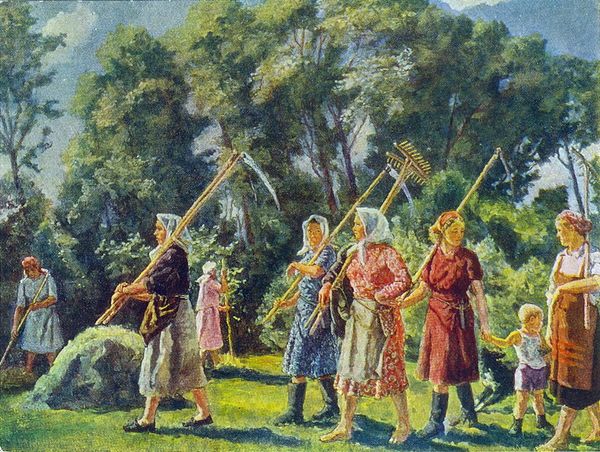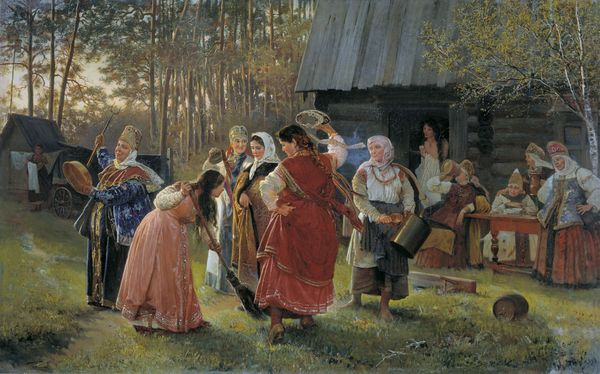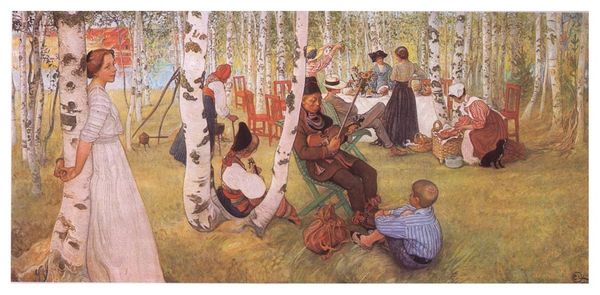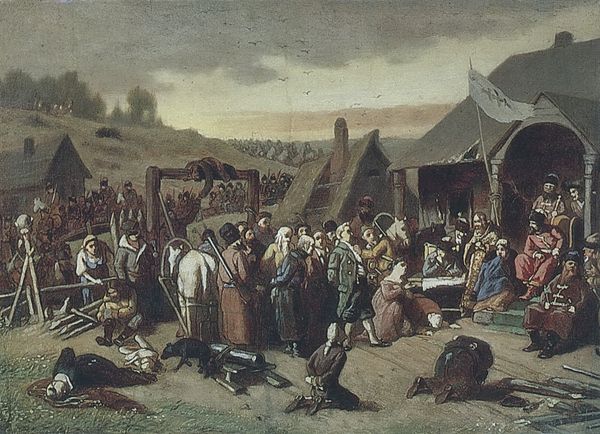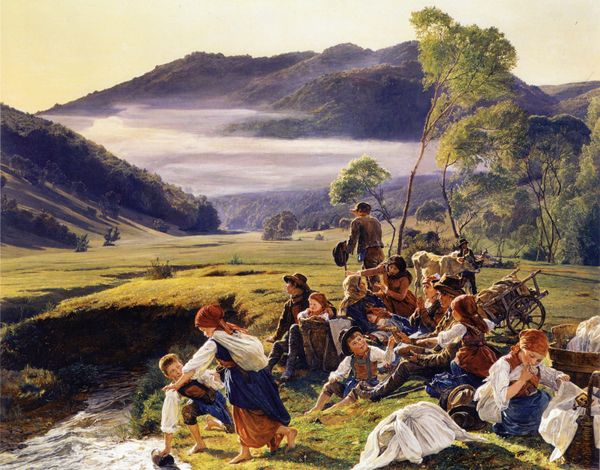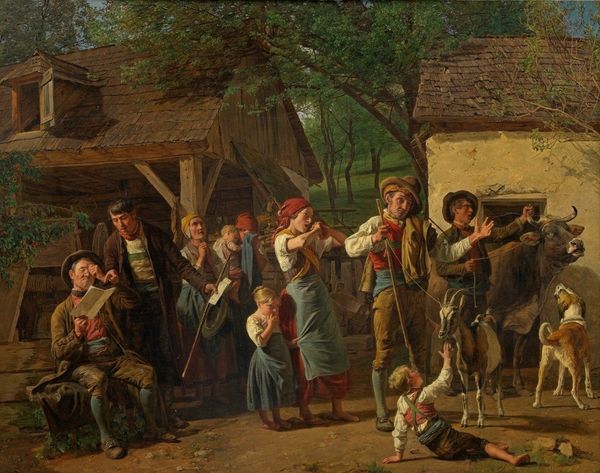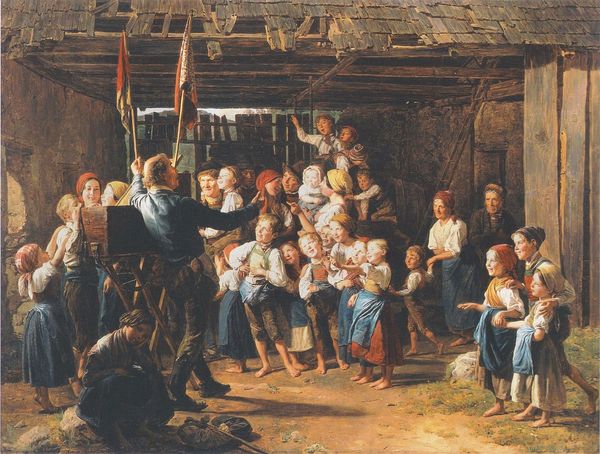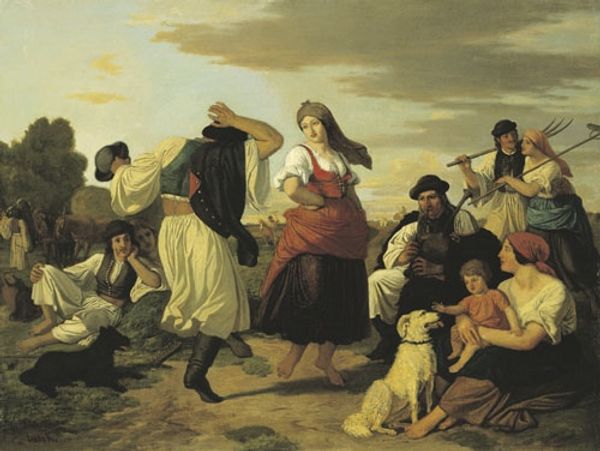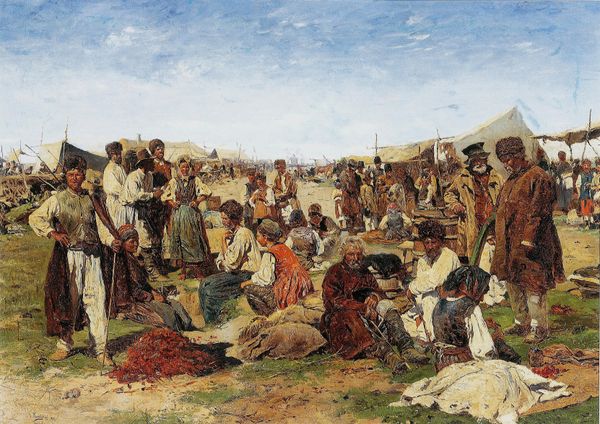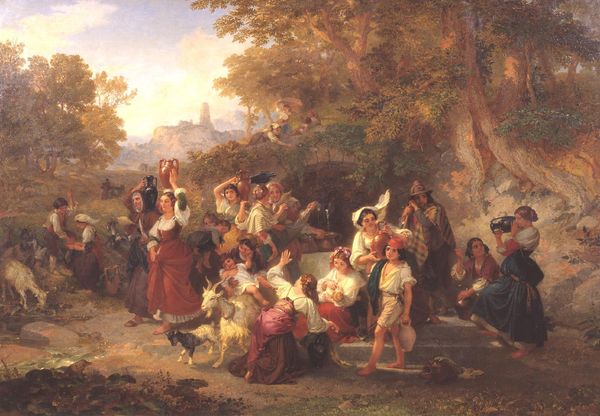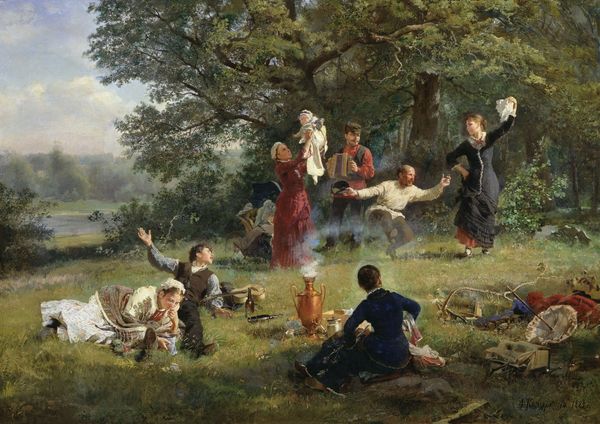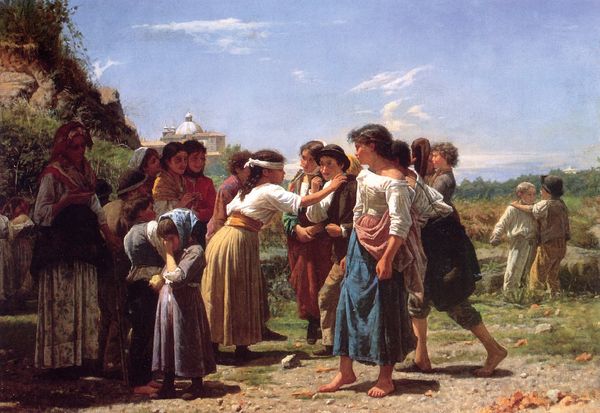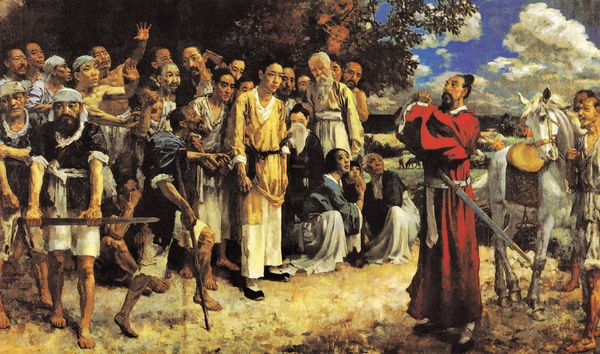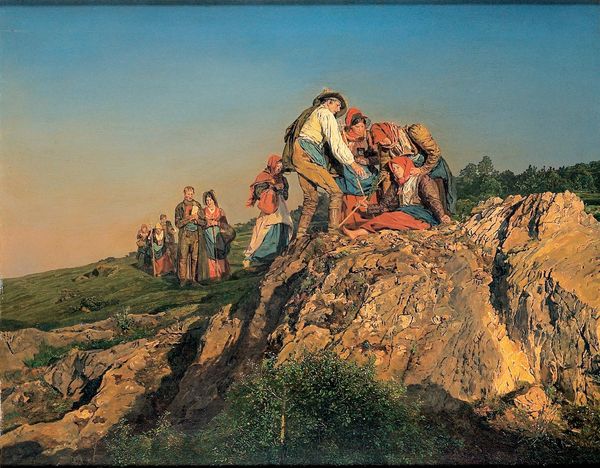
Gorky Reads Shevchenko's Works to Peasants in the Village of Manuilovtsi 1949
0:00
0:00
painting, oil-paint
#
portrait
#
gouache
#
narrative-art
#
painting
#
oil-paint
#
landscape
#
socialist-realism
#
oil painting
#
group-portraits
#
painterly
#
genre-painting
#
realism
Copyright: Karpo Trokhymenko,Fair Use
Curator: Looking at this idyllic scene, I am struck by the sense of collective absorption. What do you see? Editor: It does exude a sense of unity. Though, perhaps unity under a specific, imposed narrative? The painting, rendered in oil on canvas, is entitled "Gorky Reads Shevchenko's Works to Peasants in the Village of Manuilovtsi". It's dated 1949, by Karpo Trokhymenko. Curator: Imposed how? Gorky and Shevchenko were towering figures representing Ukrainian culture. Surely, sharing their works is inherently beneficial, empowering even? Editor: Of course, on the surface, disseminating literature appears purely positive. But in the context of post-war Soviet Union, Socialist Realism was often deployed as a tool for ideological indoctrination. Who decides which voices are amplified? Note how carefully the faces are painted – everyone looks receptive and... perhaps too uniform? It raises questions about artistic freedom. Curator: It's interesting to consider what messages are conveyed, but doesn’t it speak to cultural pride too? This is clearly a very deliberately posed setting, almost staged. The composition reinforces this: Gorky elevated in the center, figures attentively arranged around him. Editor: Precisely. Art served the state, and here, Ukrainian cultural figures are mobilized in that project. And consider the intended audience: What would they think? How would this scene resonate with people intimately familiar with their work? And further – could there be tensions between those identifying primarily as Ukrainian versus as Soviet? The intersection of identity, power, and cultural narrative feels vital here. Curator: Indeed. Even without overt propaganda, there's an inescapable political dimension here. A seemingly simple act of literary sharing is loaded with broader cultural implications, particularly relating to the construction of identity and belonging in the wake of war and Soviet power. What a powerful image. Editor: It's a reminder to engage with these kinds of works critically. Never accept them at face value. Keep challenging, keep questioning.
Comments
No comments
Be the first to comment and join the conversation on the ultimate creative platform.
